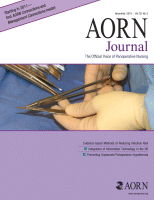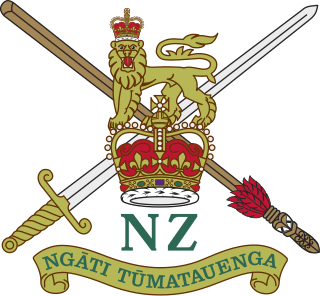
The 2004 NFL draft was the procedure by which National Football League teams selected amateur college football players. It is officially known as the NFL Annual Player Selection Meeting. The draft was held April 24–25, 2004 at the Theater at Madison Square Garden in New York City. No teams chose to claim any players in the supplemental draft that year.

A surgical technologist, also called a scrub, scrub tech, surgical technician, or operating department practitioner or operating room technician, is an allied health professional working as a part of the team delivering surgical care. Surgical technologists are members of the surgical team. The members of the team include the surgeon, surgeon's assistant, circulator nurse and anesthesia provider. They possess knowledge and skills in sterile and aseptic techniques. There are few mandatory professional requirements for surgical technologists, and the scope of practice varies widely across countries and jurisdictions. Surgical technologists attend junior colleges and technical schools, and many are trained in military schools. In the military they perform the duties of both the circulator and the scrub. The goal is for surgical technologists to be able to anticipate the next move the surgeon is going to make in order to make the procedure as smooth and efficient as possible. They do this by having knowledge of hundreds of surgical procedures and the steps the surgeon needs to take in order to complete the procedure, including the very wide range of surgical instruments they may need. Specialties can include, but are not limited to, the following: genitourinary, obstetrics and gynaecology, urology, ENT, plastics, general, orthopedics, neurology, and cardiovascular. They only work in surgical or perioperative areas and are highly specialized. Surgical technologist is the proper term for a two-year program which earns a degree in applied sciences. The profession is up and coming and highly in demand.
The perioperative period is the period of a patient's surgical procedure. It commonly includes ward admission, anesthesia, surgery, and recovery. Perioperative may refer to the three phases of surgery: preoperative, intraoperative, and postoperative, though it is a term most often used for the first and third of these only - a term which is often specifically utilized to imply 'around' the time of the surgery. The primary concern of perioperative care is to provide better conditions for patients before an operation and after an operation.

Gossypiboma, textiloma or more broadly Retained Foreign Object (RFO) is the technical term for surgical complications resulting from foreign materials, such as a surgical sponge, accidentally left inside a patient's body.
Nursing credentials and certifications are the various credentials and certifications that a person must have to practice nursing legally. Nurses' postnominal letters reflect their credentials—that is, their achievements in nursing education, licensure, certification, and fellowship. The letters usually appear in the following order:
In the United Kingdom, operating department practitioners (ODPs) are allied healthcare professionals who are involved in the planning and delivery of perioperative care. As the name suggests, they are primarily employed in surgical operating departments, but they may also work directly within a variety of acute clinical settings, including pre-hospital emergency care, emergency departments, intensive care units (ICUs), endoscopy suites, interventional radiology, cardiac catheter suites, obstetric theatres and reproductive medicine.
A surgical nurse, also referred to as a theatre nurse or scrub nurse, specializes in perioperative care, providing care to patients before, during and after surgery. To become a theatre nurse, Registered Nurses or Enrolled Nurses must complete extra training. Theatre nurses can focus on different speciality areas, depending on which they are interested in.
In the United States, anesthesia can be administered by physician anesthesiologists, an anesthesiologist assistant, or nurse anesthetist.

Nursing is a profession within the healthcare sector focused on the care of individuals, families, and communities so they may attain, maintain, or recover optimal health and quality of life. Nurses can be differentiated from other healthcare providers by their approach to patient care, training, and scope of practice. Nurses practice in many specialties with differing levels of prescription authority. Nurses comprise the largest component of most healthcare environments; but there is evidence of international shortages of qualified nurses. Nurses collaborate with other healthcare providers such as physicians, nurse practitioners, physical therapists, and psychologists. There is a distinction between nurses and nurse practitioners; in the U.S., the latter are nurses with a graduate degree in advanced practice nursing, and are permitted to prescribe medications unlike the former. They practice independently in a variety of settings in more than half of the United States. Since the postwar period, nurse education has undergone a process of diversification towards advanced and specialized credentials, and many of the traditional regulations and provider roles are changing.

Nurses in Canada practise in a wide variety of settings, with various levels of training and experience. They provide evidence-based care and educate their patients about health and disease.
Perianesthesia nursing is a nursing specialty practice area concerned with providing nursing care to patients undergoing or recovering from anesthesia. Perianesthesia nursing encompasses several subspecialty practice areas and represents a diverse number of practice environments and skill sets.
Perioperative nursing is a nursing specialty that works with patients who are having operative or other invasive procedures. Perioperative nurses work closely with surgeons, anaesthesiologists, nurse anaesthetists, surgical technologists, and nurse practitioners. They perform preoperative, intraoperative, and postoperative care primarily in the operating theatre.

The AORN Journal is a peer-reviewed nursing journal in the field of perioperative nursing and is the official journal of the Association of periOperative Registered Nurses (AORN).
Unlicensed assistive personnel (UAP) are paraprofessionals who assist individuals with physical disabilities, mental impairments, and other health care needs with their activities of daily living (ADLs). UAPs also provide bedside care—including basic nursing procedures—all under the supervision of a registered nurse, licensed practical nurse or other health care professional. UAPs must demonstrate their ability and competence before gaining any expanded responsibilities in a clinical setting. While providing this care, UAPs offer compassion and patience and are part of the patient's healthcare support system. Communication between UAPs and registered nurses (RNs) is key as they are working together in their patients' best interests. The scope of care UAPs are responsible for is delegated by RNs or other clinical licensed professionals.

The Royal New Zealand Nursing Corps (RNZNC) is a corps of the New Zealand Army. The corps was initially formed in 1915 from civilian nurses who volunteered for service during World War I, and who were granted honorary officer ranks. A Nursing Reserve had been formed as part of the New Zealand Medical Corps on 14 May 1908. Today, the corps is an officer-only corps that consists of commissioned officers who are employed for their specialist skills and knowledge as registered nurses, the corps works in conjunction with the Royal New Zealand Army Medical Corps and the Royal New Zealand Dental Corps to promote "health and disease prevention" and to provide "care for the wounded and sick". Nursing Officers in the New Zealand Army can be employed broadly in primary health, perioperative, surgical or emergency settings, which can see RNZNC personnel providing health services in a garrison health centre, in a civilian practice, or deployed on operations.
Nursing in Kenya began in 1908 and was conducted without a formal framework until 1950. Over the decades, with demand for healthcare providers increasing due to marked growth in the population of Kenya, training programs were implemented.
Integrated Medical Systems International, Inc., (IMS) is a surgical instrument management and clinical consulting company specializing in repair management, sterile process management, tracking, and other services related to surgical and endoscopic devices and instruments. Today the company operates repair facilities in Alabama, Florida, and Maryland. IMS has more than 1,200 employees nationwide.

The 2019 NFL draft was the 84th annual meeting of National Football League (NFL) franchises to select newly eligible players for the 2019 NFL season. The draft was held on April 25–27 in Nashville, Tennessee. The first round was held on April 25, followed by the second and third rounds on April 26, and concluded with rounds 4–7 on April 27. The draft featured a record-high 40 trades, surpassing the 37 that were made in 2017.
Laurie A. Saletnik is a registered nurse. She is the Senior Director of Nursing for Perioperative Services at Johns Hopkins Hospital and has served as Editor‐in‐Chief for the Association of periOperative Registered Nurses journal AORN since 2017.








